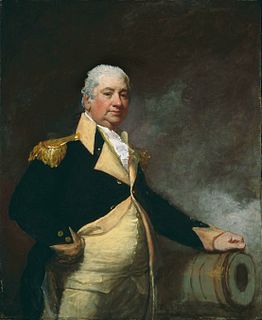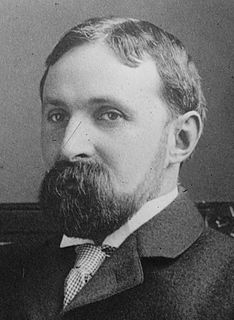A Quote by Alexander Hamilton
When you assemble from your several counties in the Legislature, were every member to be guided only by the apparent interest of his county, government would be impracticable. There must be a perpetual accomodation and sacrifice of local advantage to general expediency.
Related Quotes
Parliament is not a congress of ambassadors from different and hostile interests; which interests each must maintain, as an agent and advocate, against other agents and advocates; but parliament is a deliberative assembly of one nation, with one interest, that of the whole; where, not local purposes, not local prejudices ought to guide, but the general good, resulting from the general reason of the whole. You choose a member indeed; but when you have chosen him, he is not a member of Bristol, but he is a member of parliament.
A government is republican in proportion as every member composing it has his equal voice in the direction of its concerns, not indeed in person, which would be impracticable beyond the limits of a city or small township, but by representatives chosen by himself and responsible to him at short periods.
A pure Democracy, by which I mean a Society consisting of a small number of citizens, who assemble and administer the Government in person, can admit of no cure for the mischiefs of faction. A common passion or interest will, in almost every case, be felt by a majority of the whole; a communication and concert result from the form of Government itself; and there is nothing to check the inducements to sacrifice the weaker party, or an obnoxious individual. Hence it is, that such Democracies have ever been spectacles of turbulence and contention; have ever been found incompatible with personal security, or the rights of property; and have in general been as short in their lives, as they have been violent in their deaths.
Each pursues his private interest and only his private interest; and thereby serves the private interests of all, the general interest, without willing it or knowing it. The real point is not that each individual's pursuit of his private interest promotes the totality of private interests, the general interest. One could just as well deduce from this abstract phrase that each individual reciprocally blocks the assertion of the others' interests, so that, instead of a general affirmation, this war of all against all produces a general negation.
Where it is in his own interest, every organism may reasonably be expected to aid his fellows. Where he has no alternative, he submits to the yoke of communal servitude. Yet given a full chance to act in his own interest, nothing but expediency will restrain him from brutalizing, from maiming, from murdering his brother, his mate, his parent, or his child. Scratch an 'altruist' and watch a 'hypocrite' bleed.
Among the fundamental likeness between the Revolutionary Republicans and the Anarchists is the recognition that the little must precede the great; that the local must be the basis of the general; that there can be a free federation only when there are free communities to federate; that the spirit of the latter is carried into the councils of the former, and a local tyranny may thus become an instrument for general enslavement.
Donald Trump wins 2,623 counties and Hillary Clinton with 489. You know how many counties independents won? Zero. Just like they always have. Not one county. Independents did not win one county. The exception to that, 1992 when Ross Perot won 15. The independents don't win anything. That's why I've always - the precious independents and the moderates and so forth. So much bohunk out there.
The true test is, whether the object be of a local character, and local use; or, whether it be of general benefit to the states. If it be purely local, congress cannot constitutionally appropriate money for the object. But, if the benefit be general, it matters not, whether in point of locality it be in one state, or several; whether it be of large, or of small extent.






























